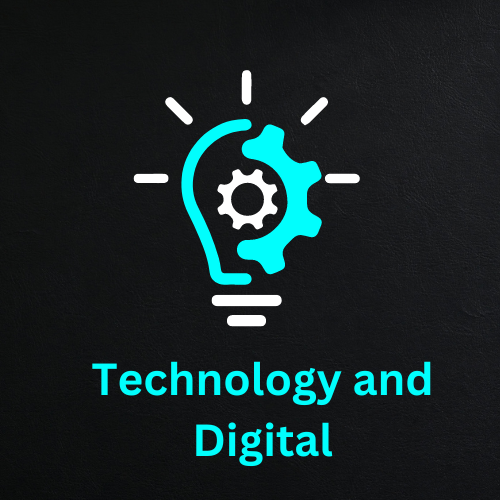The Role of 5G in Smart Cities

The world’s urban centers are rapidly transforming into connected ecosystems powered by data, sensors, and real-time communication. At the heart of this transformation lies 5G technology — the fifth generation of mobile networks. By offering ultra-fast connectivity, low latency, and massive device capacity, 5G is becoming the backbone of smart cities, enabling innovations that improve efficiency, sustainability, and quality of life for millions of residents.
Understanding the Foundation: What 5G Brings to Smart Cities
Smart cities rely on vast networks of interconnected devices, from traffic cameras and environmental sensors to smart meters and autonomous vehicles. These systems generate enormous volumes of data that need to be processed in real time. Traditional 4G networks struggle to handle such demands efficiently. This is where 5G steps in.
5G networks deliver speeds up to 100 times faster than 4G and can support over one million connected devices per square kilometer. Equally important, the network’s latency — the time it takes for data to travel — drops to as little as one millisecond. This makes it possible for critical urban applications, such as remote surgeries, self-driving cars, and automated energy grids, to function seamlessly and safely.
Practical Tip:
City planners should begin with small-scale pilot zones to test 5G-enabled applications like smart traffic management before expanding citywide deployment. This approach ensures smoother integration and optimized infrastructure investment.
Transforming Urban Infrastructure with 5G
The true potential of 5G lies in how it enables smarter, more adaptive city infrastructure. Urban environments face complex challenges such as traffic congestion, energy waste, and pollution. With 5G-powered systems, cities can collect, process, and act on data faster than ever before, allowing for real-time decision-making and automation.
1. Smart Traffic and Transportation
One of the most visible impacts of 5G in smart cities is the transformation of transportation systems. Using 5G-connected sensors, traffic lights can adapt dynamically to congestion levels, and connected vehicles can communicate with each other and with roadside units to avoid accidents or delays. For example, if a vehicle ahead suddenly brakes, nearby cars can receive instant alerts to slow down, preventing collisions.
5G also supports the rise of autonomous vehicles. With low latency and high reliability, it allows self-driving cars to make split-second decisions based on real-time data from surrounding infrastructure. By 2030, it is expected that many major cities will have dedicated lanes for autonomous vehicles, powered by continuous 5G connectivity.
Practical Tip:
Transportation departments can partner with telecom operators to implement 5G-enabled traffic sensors at critical intersections, reducing congestion and improving commuter safety.
2. Smart Energy and Utilities
Efficient energy use is a cornerstone of any smart city. With 5G, power grids can communicate instantly with distributed energy resources such as solar panels, wind turbines, and electric vehicles. This allows for better load balancing and energy distribution, reducing waste and preventing outages.
Smart meters can transmit data in real time, enabling utilities to identify anomalies, detect leaks, and optimize resource usage. In 2025, many cities are exploring AI-integrated 5G systems that automatically adjust lighting, heating, and cooling in public buildings based on occupancy and weather data.
Practical Tip:
Utility providers should invest in 5G-compatible smart meters and IoT platforms to achieve more accurate billing and improve energy efficiency.
3. Public Safety and Emergency Response
Public safety is another critical area where 5G demonstrates transformative value. High-definition surveillance cameras connected via 5G can stream real-time video to command centers with minimal delay, enabling faster incident detection and response. Drones equipped with 5G connectivity can assist in search-and-rescue operations, delivering live aerial footage and thermal imaging data to first responders.
Moreover, 5G supports mission-critical communication systems that ensure firefighters, police, and medical teams remain connected even during large-scale emergencies. Unlike older networks that can become congested, 5G allocates bandwidth dynamically to maintain reliability under pressure.
Practical Tip:
Municipalities can develop dedicated 5G networks for emergency services to ensure uninterrupted communication during crises and disasters.
5G and Sustainable Urban Development
Beyond technology, 5G plays a crucial role in creating sustainable and eco-friendly urban environments. Environmental monitoring systems powered by 5G-enabled IoT sensors can measure air quality, noise pollution, and water levels in real time. This data helps authorities implement proactive environmental policies and respond quickly to pollution spikes or resource shortages.
Additionally, smart waste management systems use 5G to optimize collection routes based on bin fill levels, reducing fuel consumption and emissions. Smart lighting systems automatically dim or brighten based on pedestrian movement, significantly cutting down energy use across cities.
Practical Tip:
City councils should prioritize investment in 5G-enabled environmental sensors and smart lighting systems to meet carbon neutrality goals more effectively.
The Role of 5G in Data-Driven Governance
Smart cities thrive on data — not just collecting it but turning it into actionable insight. With 5G, local governments can access accurate, real-time information about every aspect of urban life, from energy consumption to traffic flow. Advanced analytics and machine learning models use this data to optimize decision-making, leading to smarter, evidence-based governance.
For instance, predictive maintenance powered by 5G data can identify infrastructure wear before it becomes a problem, preventing costly repairs or accidents. Likewise, 5G facilitates citizen engagement platforms where residents can report issues or track public projects instantly through connected mobile apps.
Practical Tip:
Governments can implement open-data platforms supported by 5G to encourage innovation and transparency, allowing startups and researchers to develop new solutions for local challenges.
5G and the Internet of Things (IoT)
The expansion of the Internet of Things (IoT) is one of the most significant technological trends shaping smart cities. Billions of connected devices — from streetlights and parking meters to healthcare wearables — depend on reliable, high-speed networks to operate efficiently. 5G enables this by offering massive machine-type communication (mMTC), a standard designed to support vast IoT deployments with minimal energy consumption.
As of 2025, many global cities are integrating 5G-based IoT platforms to manage urban services more intelligently. For example, smart parking systems use sensors to detect available spots and send information directly to drivers’ apps, reducing time spent searching for parking and cutting emissions.
Practical Tip:
Businesses and entrepreneurs can explore opportunities to develop IoT applications that leverage 5G’s reliability, especially in areas such as logistics, healthcare, and environmental monitoring.
Challenges in Implementing 5G for Smart Cities
While the benefits are substantial, deploying 5G across urban areas comes with challenges. Infrastructure costs remain high, as 5G networks require a dense array of small cells and fiber connections. Additionally, cybersecurity and data privacy concerns must be addressed, given the vast amounts of personal and operational data exchanged in real time.
Another hurdle involves standardization and interoperability. Different network vendors and device manufacturers must ensure seamless communication between systems. Without unified standards, smart city ecosystems risk fragmentation and inefficiency.
Practical Tip:
City administrations should collaborate with telecom operators and cybersecurity experts to establish clear regulations, shared infrastructure frameworks, and data protection policies before full-scale 5G deployment.
The Future of 5G in Smart Cities
As 5G matures, its integration with other advanced technologies such as artificial intelligence (AI), blockchain, and edge computing will drive the next wave of urban innovation. For example, edge computing brings data processing closer to the source — like sensors or vehicles — reducing latency and improving responsiveness. Blockchain technology can enhance transparency and security in digital transactions, from energy trading to identity verification.
Looking ahead, 6G research is already underway, promising even higher speeds and greater intelligence. However, the foundation built by 5G today will remain critical for the next decade, setting the stage for more connected, efficient, and sustainable urban living.
Practical Tip:
Urban planners and technology leaders should focus on future-proof infrastructure that supports continuous upgrades as 5G evolves into 6G, ensuring long-term scalability and value.
Conclusion: 5G as the Digital Backbone of Smart Cities
Smart cities represent the future of urban living — efficient, connected, and sustainable. None of this would be possible without the power of 5G. Its speed, reliability, and scalability make it the perfect foundation for innovations across transportation, energy, public safety, and governance.
As more cities embrace 5G, the gap between traditional infrastructure and digital innovation continues to narrow. The result is a new urban era where technology doesn’t just serve people — it connects them to a smarter, cleaner, and more resilient world.
What’s your perspective on 5G’s impact on urban development? Have you noticed emerging smart technologies in your city? Share your thoughts in the comments below and explore how 5G is shaping the cities of tomorrow.
Call to Action: Stay updated with the latest developments in 5G and smart city innovation. Explore local initiatives or industry partnerships that bring connected infrastructure closer to your community.




